The Nigeria Police Force has declared the founder of the Foundation for Investigative Journalism (FIJ).
Recall that Fisayo recently investigated the smuggling activities of the Nigeria Customs Service (NCS) involving the most notorious smuggler in the Southwest, IBD Dende, who was seen in a video clip threatening to kill a Customs officer who seized his smuggled goods.
On Tuesday, the National Cybercrime Centre of the Force (NPF-NCCC) held an interrogation session with Bukky Shonibare, the chairman of FIJ’s Board of Trustees, at their Abuja headquarters.
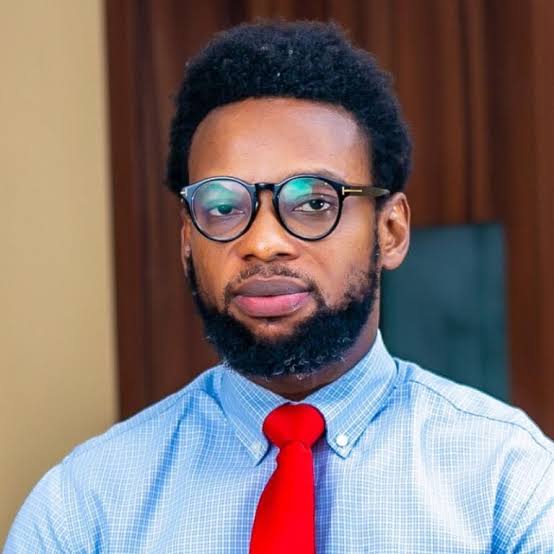
As reported by FIJ, Shonibare was subjected to questioning and scrutiny by the authorities, who only released her after securing a commitment from her to facilitate the appearance of ‘Fisayo Soyombo, the founder of FIJ.
Shonibare had been summoned by the NPF-NCCC for an interview with its director, where she was expected to address queries related to cybercrime and provide clarification on a matter under investigation involving FIJ.
With full transparency and in adherence to legal protocols, Shonibare, herself a legal practitioner, attended the session, accompanied by FIJ’s legal counsel.
“As you know, we’ve never revealed the identities of the board members of FIJ, not even me as the board chair. That’s for security reasons,” Shonibare told FIJ on Thursday.
“But because they are law enforcement agents, they have the power to remove the veil, you know. This means that they can go to CAC or any similar organisations to obtain information about the person. So, that’s what they did to get my information: name, email address, phone number and everything.
“So, I got the email from them on Saturday. Fast forward to Monday, one of the officers called me. Her name is SP Ann Elunor.
“I was there a few minutes before nine o’clock and did some briefing with my lawyer, Folarin Aluko. Samson Itodo of YIAGA Africa also came there in solidarity. So, we got in and signed in at immediately 9:09 am. They asked me to drop my phone and all of that, but I told them that I did not come with my phone. I had been advised to leave my phone behind. I was there with my lawyer, there was another junior lawyer and Samson Itodo, but they said that I could only go in with one person. So, I went in with the senior lawyer.
“We didn’t drop anything at the gate. When we were signing in, they said we should write ‘threat response’ as the department we came to visit. I was surprised because this would imply that the organisation and I were considered to have engaged in cyber threatening. We were uncomfortable with that but we had to write it. So that there wouldn’t be any form of ambiguity, because they were asking me to write ‘TR’, I wrote the ‘Threat Response’ in full. Trust me, I was thinking of Jamal Khashoggi at this time. People had to know exactly where we went to.”
“So, they took me upstairs. We got into this room. The room had two tables and four chairs. SP Ann was there, another person who was an investigator was there and there were two other people (a male and a female). The investigator’s name was Nnamdi.
“They spent the first few minutes asking why we released a tweet about the invitation, that they just invited me for one or two questions. Samuel Umezurike, the deputy director of the threat response unit, asked why we said that they were prosecuting me. I responded that we never used the word ‘prosecute’. Umezurike had come out to welcome us and just give us some preliminaries. I didn’t have my phone with me, but I later confirmed that they mistook ‘persecution’ for ‘prosecution’.
“The first minutes, they spent lamenting and jesting. One said, ‘that’s why I don’t like social media’. I told them that we know the work we do and why it’s necessary for us to update the public on our movement. The deputy director continued to jest and try to throw jokes. He also said that when they went into our CAC file to get who to invite, they decided to invite the board chair. When they saw that the portrait was that of a female, he asked himself if they should be inviting a woman for this exercise. He was emphasising ‘the fact of being a woman’.
READ ALSO: CBN Raises Capital Requirements for Nigerian Banks, Prompting Merger Speculations
“At that point, I had to cut in; I asked what was wrong about being a woman. It sounded discriminatory. I asked if I was less of a board chair who could answer their questions because I am a woman. He said that wasn’t what he was trying to say, then he went on to say, ‘this poor woman’. I was just smiling at that point. The man went on to say that he checked my age and saw that I was a young person, and he wondered if he would like to invite a young person. He said that he considered inviting the oldest person on the board instead (That would have been Mr. Jahman Anikulapo, the renowned art and culture journalist and former Editor of The Guardian on Sunday.). Again, I pointed out how that ‘poor woman, young person’ sounded discriminatory in an intersectional manner.
“They took their time before actually asking me to write statements in response to the questions they had. My lawyer asked them if they planned to take my statement under caution or voluntarily. Umezurike asked why we wanted to know and the lawyer stated that they knew what would happen either way, so he needed them to clarify if they would detain me or not.
“So the police officers looked at one another, and said that I did not have to write the statement on caution, that it would be voluntary. The official said he had to step out to confirm something, then he returned and then said it’s okay to be voluntary.”
Aluko had informed Shonibare beforehand as they prepared to enter the NPF-NCCC premises: if authorities insisted on taking her statement under caution, there was a risk of her being detained.
“After the introduction, they asked me for my role as the board chair. Now, at this point, I must say categorically that that investigator was biased,” Shonibare told this reporter.
“It was biased because, if you are conducting an investigation, you shouldn’t have held an initial position. The responses that you get from all of the parties involved are what contribute to analyses and lead to conclusions. But the man already held a position, and the position is that our stories are untrue; that our stories don’t meet journalistic standards and that we don’t adhere to our objectives.
“They asked me that, based on my role, do we have any oversight or control over any news that is released by FIJ. I told them that FIJ has an executive and a non-executive arm. The board is a non-executive arm. No board anywhere is involved in the day-to-day running of an organisation, which is where the executive arm of it comes in. They (the executive) are engaged in the operational activities. We are only engaged in the governance structure and institutional strengthening of the organisation. We are not involved in the day-to-day activities. They were trying to establish that the board chair and board members are supposed to control the stories published by FIJ.
“I explained that the board is headed by me. There is an editorial team, there is an executive arm that is headed by the editor-in-chief. ‘Fisayo (Soyombo) serves as not just the founder but as the executive director. In both capacities, he has a seat on the board. So any oversight or any checks that we need to do on the team regarding the day-to-day operational work, we do it through ‘Fisayo.
“So, at this point, the investigator asked, how do we post stories on our website? Does it come through the board? I said that it doesn’t come through the board and it shouldn’t come to the board.
“They said, how do we then ensure control? I said, because there are basic principles, aside from journalistic, ethics and standards. There are principles that guide our work at FIJ. At this point, the investigator started reading out our objectives, emphasising more on the ones relating to the truth. So he asked me directly, can I confirm, can I say that all of the stories that we report at FIJ are true? I said yes. I noticed that his questions were trying to establish a general standard or trying to draw out lapses in FIJ so that he could use the same yardstick to measure all of the stories.
“He asked if every story gets to the board first before it is posted and I said no. I said, no; it doesn’t and it shouldn’t because that is not our responsibility. Just imagine FIJ waiting for board members to vet every story when the board didn’t go on the field, we’re not the ones who went for the investigation. How do we affirm or reject discoveries from a journalist’s investigations? It is not our responsibility or the responsibility of any non-executive member of boards across the world.
“I insisted that other than journalistic ethics, ‘Fisayo is not just a journalist but he’s a multi-international-award-winning journalist, and no journalist will reach such heights without adhering to journalistic standards. And he’s not just qualified, he is not just an award-winning journalist, he’s also experienced with a history in many media firms. We believe that every story that we put out is true. So, on that question, I said, yes, I believe our stories are true to the best extent possible. Even the deputy director did this to me and tried to hint at criminal responsibility.
“When do we see the story, they asked. I said we see the story when others see the story. That’s when we also see the story. I said we see the story like every bystander.
“They tried to make the board assume a potentially criminal position because they were also trying to already establish that ‘Fisayo is a criminal. If they were saying that the board will be criminally responsible, it means that the person that you believed had done wrong was a criminal. They were not satisfied with how short my statement was. We were finished with the questions and the investigator crossed it.
“The investigator closed his iPad, put his hands on the table and said, well we need to speak to ‘Fisayo. You need to produce ‘Fisayo. So I said, if he said I need to produce ‘Fisayo, that sounds like you have tried to get ‘Fisayo or you’ve invited him and he did not come, so you need me, in whatever capacity, to go and produce him. So, I had to clarify that ‘Fisayo was not on the run; it is not like they had invited him and he didn’t come. So, he asked when I could come with ‘Fisayo. I asked if he was inviting me again. He said, yes, but I had to return with ‘Fisayo.
“So, I told him we have to get back to ‘Fisayo and to know when he’ll be available to come, and when he’s around; ‘Fisayo is not running. He took the statement in and came back outside and asked us to come see the deputy director. He had exited at some point into the questioning.
“So, they took us in and he said, madam, how was it? I told him that questions were asked, and questions were answered. He asked if I was treated well, and I said that was subjective. He then said that he could see we were being careful and all of that, that we could be friends. He was doing everything possible to be nice and playful.
“He asked why FIJ was not like another specific non-profit organisation. The deputy director said that he was friends with this non-profit organisation. He said that they would go to do their research and bring the information to the police. ‘So, why are we publishing our work?’ he asked. ‘Why don’t we bring some findings to them and settle things amicably?’ I told him that FIJ is the Foundation for Investigative Journalism. That’s the work that we do. We’re not another befriending non-profit bringing stories to them. We don’t work that way. Our job is to publish stories.
“The deputy director said that he led the investigation into Gistlover releasing wrong information and claimed that what FIJ did was similar. I told him that we don’t do that kind of work. There’s a solemness in the work that we do.
“He then said that he had access to data. ‘Just having your phone number alone, you’ll be shocked at the amount of information I can get,’ he said. He kept saying it as though it was a huge discovery. It seemed like a threat.
“The deputy director said that they had access to data everywhere, data we don’t have access to. ‘For instance, we have access to people’s account details,’ he said. He said that ‘Fisayo and FIJ don’t have that kind of data, account statements and account flows.
“He picked up the statement and said that it was very short. He started reading it and got to the point where I wrote that: for every story we release, we make sure we meet with journalistic standards, including contacting the relevant parties. So he took me up on that. He asked if we do this on every story. I said that is basic journalistic standard.
“He told us to come along to meet the executive director. We went upstairs to meet the executive director and the office was closed. We went downstairs and I was asked if I could wait a little longer to meet the executive director. I reminded him that I had a flight to catch. Then he said that he wouldn’t keep me waiting, then he asked SP Ann to accompany us out.
When FIJ contacted Elunor on Thursday seeking her input on the encounter, she requested to consult with her superior before providing any comments. Subsequently, she sent a text message stating:
“I have spoken with my team leader, and he advises you to come to the office. Thanks.”
When questioned by this reporter about the identity of her team leader, Elunor did not provide a response.
(FIJ)



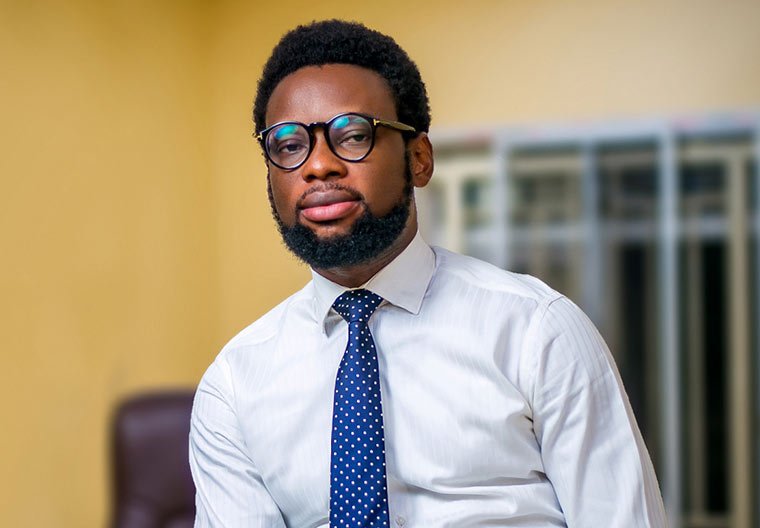

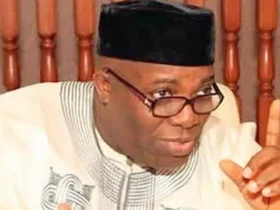

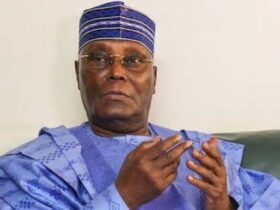
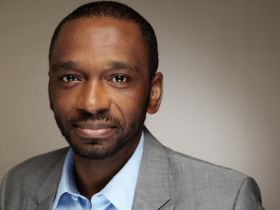
Leave a Reply